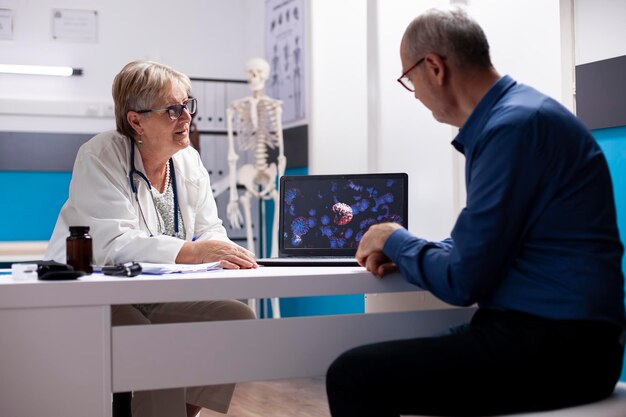
Sponsored article
In the rapidly evolving landscape of healthcare, point-of-care diagnostics have emerged as a critical component in enhancing patient outcomes and streamlining medical processes. By bringing diagnostic testing closer to the site of patient care, these advancements not only accelerate diagnosis but also reduce the burden on traditional laboratory resources. As technological innovations continue to unfold, the potential for further improvements in efficiency and patient care remains vast and promising.
In recent years, technological advancements have ushered in a new era of innovations in point-of-care diagnostics, fundamentally transforming how healthcare providers approach patient care. Leveraging cutting-edge medical technology, these advancements are bridging the gap between diagnostic testing and immediate care delivery. Artificial intelligence (AI) plays a pivotal role by enabling faster and more precise diagnostic capabilities, reducing human error, and allowing for real-time data analysis. Furthermore, portable diagnostic devices are revolutionizing the landscape by providing healthcare professionals with the tools to conduct comprehensive tests at the patient’s bedside, significantly enhancing efficiency and patient outcomes. The integration of these technologies in medical testing supplies is not only improving accuracy but also offering cost-effective solutions that are accessible and reliable. Companies like Lochness Medical Supplies Inc. are at the forefront of this transformation, offering a diverse range of medical testing supplies that are driving this innovation forward.
The advent of advanced point-of-care diagnostics has had a profound impact on patient care and healthcare management, significantly enhancing the accuracy and speed of medical diagnoses. As these rapidly evolving diagnostic tools become increasingly integrated into clinical settings, healthcare providers can deliver more precise and timely treatments, drastically enhancing both patient outcomes and healthcare efficiency. Quick, on-the-spot testing ensures that critical health decisions are made without the delays associated with traditional laboratory procedures. This immediacy in diagnosis not only improves patient satisfaction but also streamlines healthcare management by reducing the burden on hospital resources and enabling more effective allocation of medical staff. Moreover, the improved accuracy of these diagnostic tests minimizes the risk of misdiagnosis and subsequent unnecessary treatments, paving the way for personalized medicine and tailored treatment plans that cater to individual patient needs. Consequently, the diagnostic impact is far-reaching, optimizing patient care pathways and fostering more resilient healthcare systems.
The integration of advanced point-of-care diagnostics into the healthcare industry presents a multitude of challenges that must be addressed to unlock its future potential. One of the primary challenges is ensuring accuracy and reliability, as these technologies must consistently deliver precise results in diverse clinical settings. Additionally, regulatory approval processes can be lengthy and complex, delaying the availability of cutting-edge solutions to practitioners. The high initial costs associated with implementing these systems pose another significant barrier, often deterring smaller healthcare facilities. However, the future potential of point-of-care diagnostics holds promising opportunities:
To fully harness the potential of point-of-care diagnostics, a collaborative approach involving stakeholders across the healthcare industry is essential.